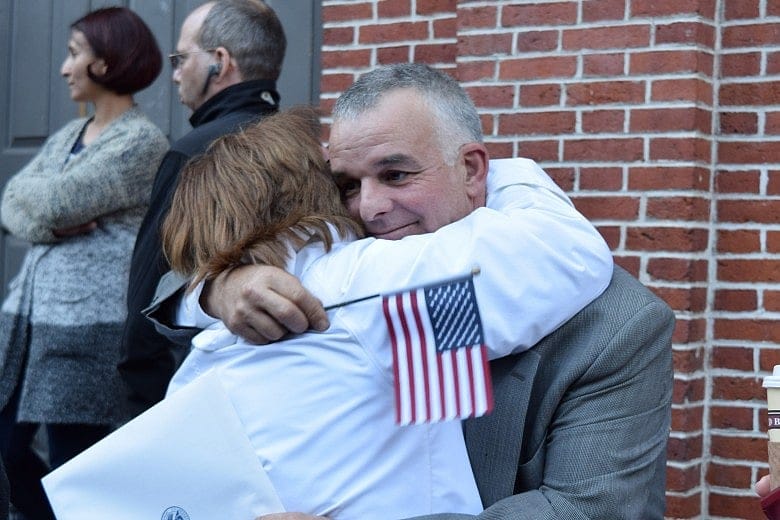Pledging allegiance: Ceremony mints Boston’s newest citizens

This article includes an interactive quiz at the end of the story.
BOSTON – On a sunny October afternoon, 368 immigrants from dozens of nations rose to their feet in Faneuil Hall's dignified upper chamber and swore allegiance to the United States of America, marking their entry into U.S. citizenship.

